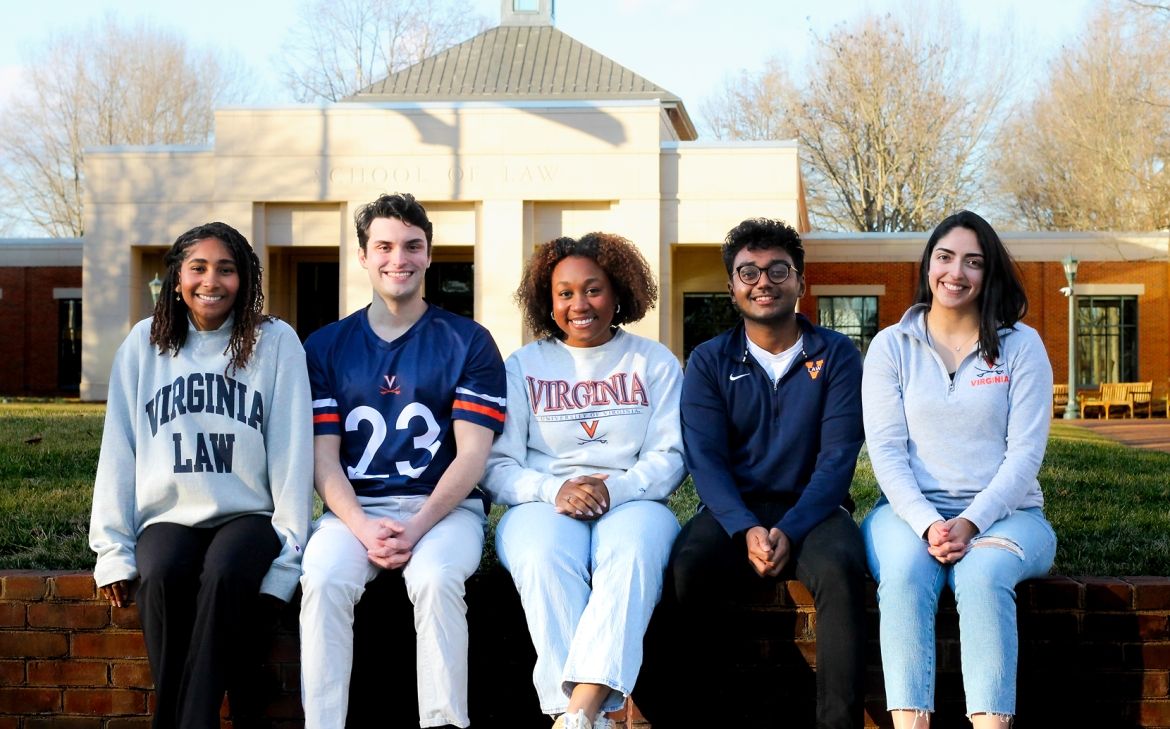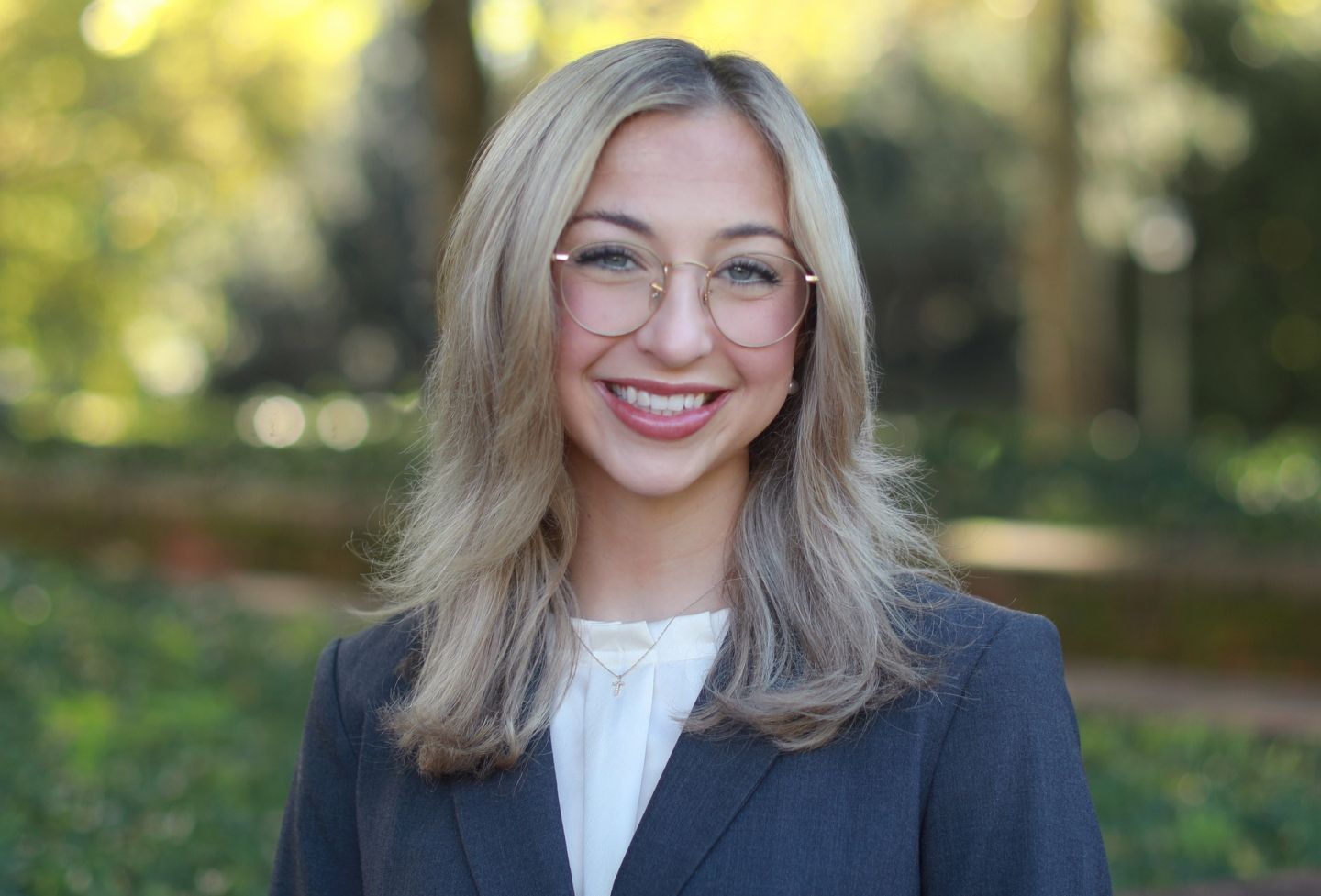The incoming Student Bar Association leaders, led by president-elect Laura-Louise “LL” Rice ’25, won their election on a platform that promised to make the SBA more “ACTIVE” than ever.
Rice and her colleagues are using the word “ACTIVE” as an acronym — for “accountability, communication, transparency, inclusivity, vibes and engagement” — but it could just as easily stand alone as a one-word descriptor of her goals for the student governing body.
“Really, SBA should be touching everyone, all the time,” Rice said in an interview just days before taking office Monday. “For me, the SBA constitution is just a guideline on what must be done — I think we should be taking the liberty to actively do more.”
For her presidency, that means placing student government “at the center of the student experience” — at the center of advocating for what student organizations and individual students want and need academically, socially, professionally and administratively — including representing the student body as the Law School writes a formal free speech policy to comply with a new ABA accreditation requirement.
Rice’s zeal for leadership and volunteerism first blossomed when, at age 10, her grandparents charged her with helping to run vacation Bible school at Mount Pisgah Baptist Church in Greenwood, South Carolina, where her grandfather is the pastor.
“One of the things that both my sets of grandparents always instilled in me is that you don’t just take from the things that you participate in — you should always be ready and willing to give a part of yourself back to what you were blessed to take advantage of,” Rice said.
To her, that means taking on leadership roles that help organizations survive and thrive for the benefit of future members.

Rice was elected governor of Palmetto Girls State in high school and, among many other activities in her undergraduate years at the University of South Carolina, she was involved with student government, first as a freshman council member and then as deputy chief of staff to the speaker of the student senate. In the latter role, she would collect data and arrange the logistics to help the speaker advocate to administrators on behalf of the senate and the student body.
She intends to apply that same managerial efficiency to her work as SBA president.
“In our first meeting, senators are going to be assigned to a committee and to three student organizations” to liaise with, Rice said. “If they have any problems, we can figure out where else they can fit in, because I don’t find it effective to force people into doing stuff that they’re not passionate about. But I think that by outlining things early, people will know what their role entails.”
She also would like to hold a spring summit with the incoming and outgoing presidents of every organization to get on the same page about collaboration for events, funding and SBA’s plans and commitments for the upcoming year. From there, she intends for SBA to be “over-communicative” with student groups to make sure they feel engaged and included — and to keep SBA accountable for its promises.
That proactive approach describes the first half of her ACTIVE platform. The last three letters, however, get at the reason she chose UVA Law in the first place.
“I always joke that I wanted to go to a law school where I could keep my personality,” Rice said. “When I visited UVA and met people at the admitted students open house, even when I started Community Fellows, I was like, ‘Oh yeah, this is the place where I can 110% be myself.’”
As she did when she served as the president of the First-Year Council last year and of the Black Law Students Association this year, she wants to continue fostering a sense of openness, authenticity and collegiality.
She also wants to take specific actions to engage all students, including setting aside funding for students in need to be able to attend events that have associated costs, and creating a guidebook to help foreign and first-generation students navigate the law school experience.
Essentially, she wants to “restructure and revitalize the infrastructure of what SBA provides and how we provide it,” she said.
Rice recognizes that she has benefited from attending UVA Law, a top school that also offered her a prestigious, full-tuition Karsh-Dillard Scholarship. She has used her leadership skills and energy to reinvest in the school that invested in her.
“I take being in law school and having the ability to be involved in all these organizations as a privilege that a lot of people who look like me wouldn’t have had generations ago,” Rice said. “I don’t have a choice but to give it my all, because there are people coming behind me who are going to want those same opportunities. And if I squander it, who’s to say it'll still be around for them when they’re here?”
Founded in 1819, the University of Virginia School of Law is the second-oldest continuously operating law school in the nation. Consistently ranked among the top law schools, Virginia is a world-renowned training ground for distinguished lawyers and public servants, instilling in them a commitment to leadership, integrity and community service.


